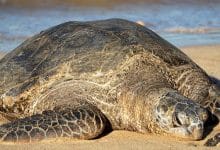Dead sea turtle found on Phang Nga beach sparks pollution fears
Officials blame marine debris after rope fragments found inside the animal during post-mortem inspection
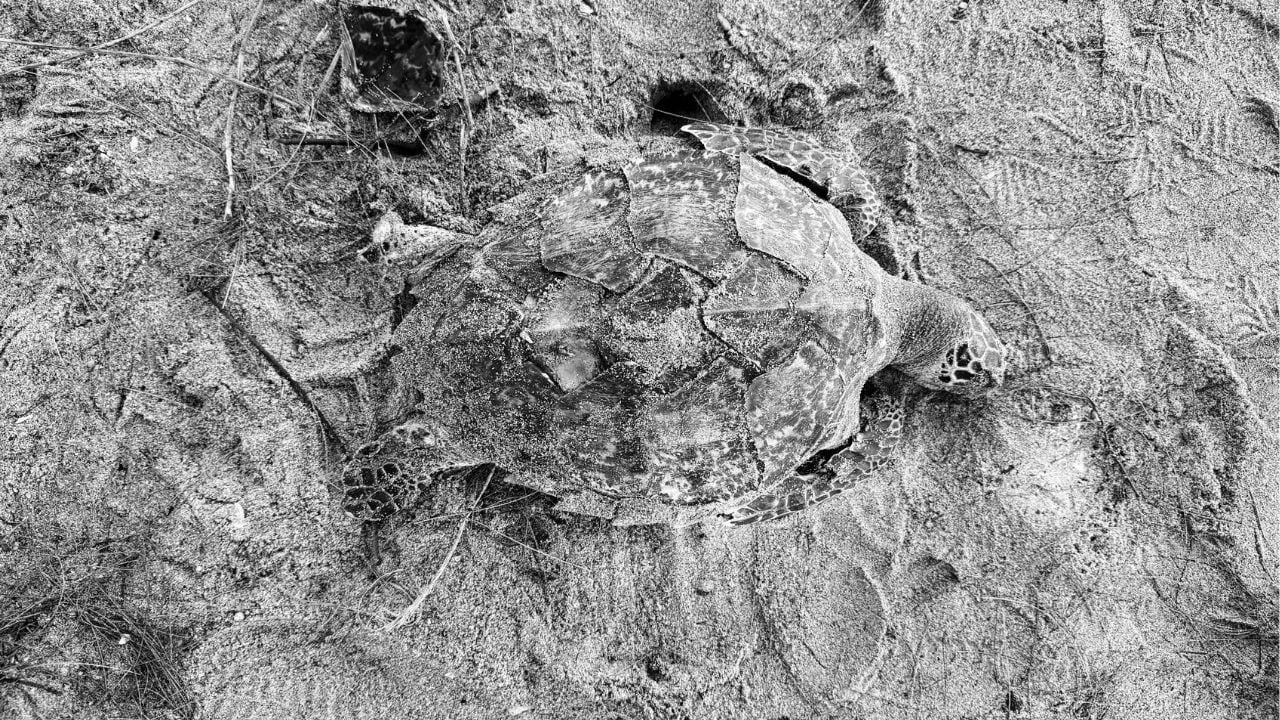
The Department of Marine and Coastal Resources (DMCR) has launched an investigation after a decaying sea turtle carcass was discovered washed up on the sands in front of The Sands Khao Lak by Katathani Resort in Phang Nga’s Takua Pa district.
The grim find was first reported to the Phang Nga Provincial Marine Office yesterday, July 30. Officials from the Marine and Coastal Resources Office 6 were swiftly dispatched to the scene after being alerted by the Marine Department. They were joined by personnel from the Mangrove Forest Conservation Centre 10 and the Sirithar Rare Marine Animal Rescue Centre to inspect the area and assess the cause of death.
The turtle, located at coordinates 417110 E 956287 N, was in an advanced state of decomposition. According to officials, the shell was cracked, and its outer scales were peeling off—classic signs of prolonged exposure and decay. Measuring approximately 34 centimetres in length and 32cm in width, the turtle was small, possibly a juvenile.
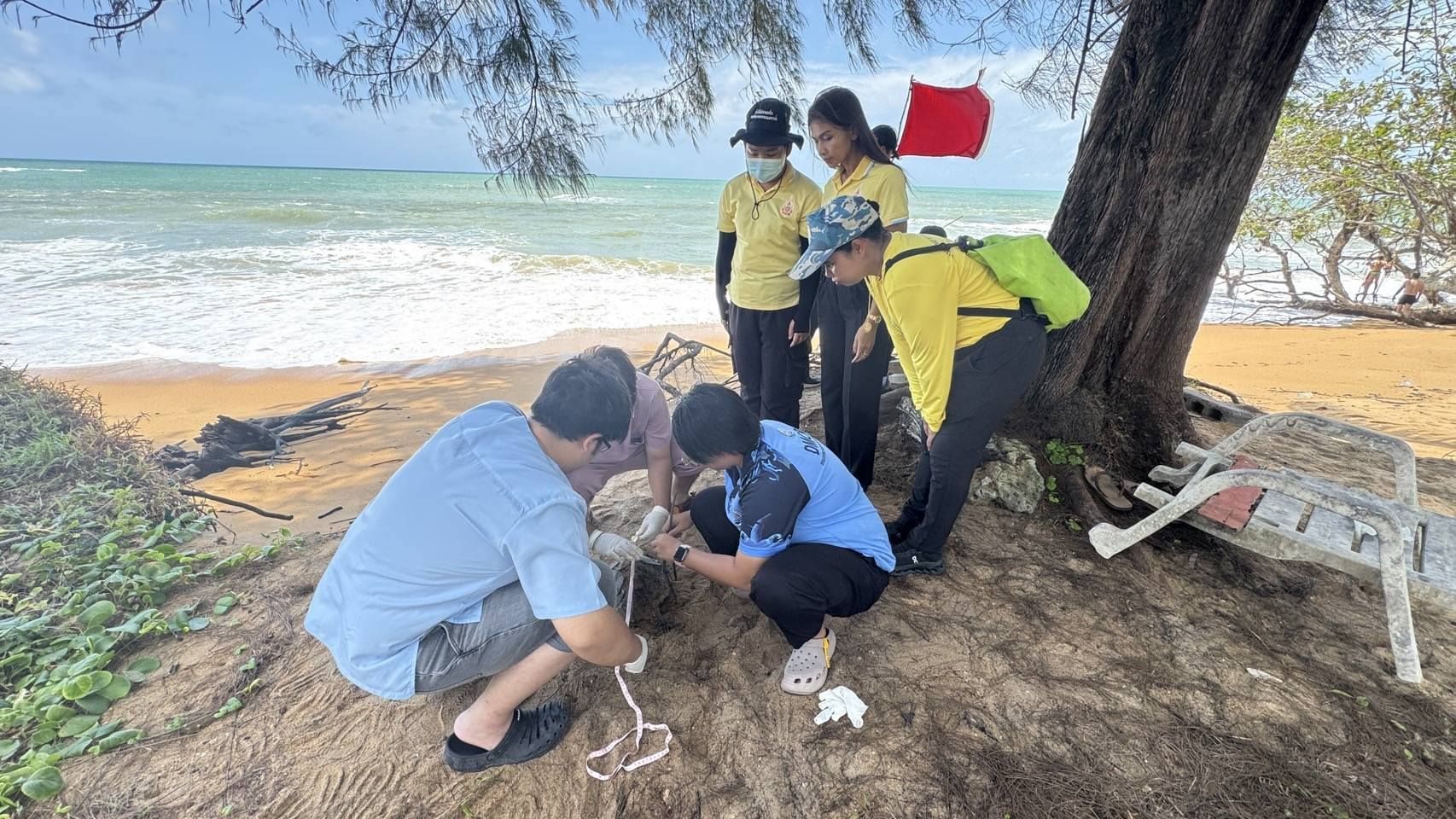
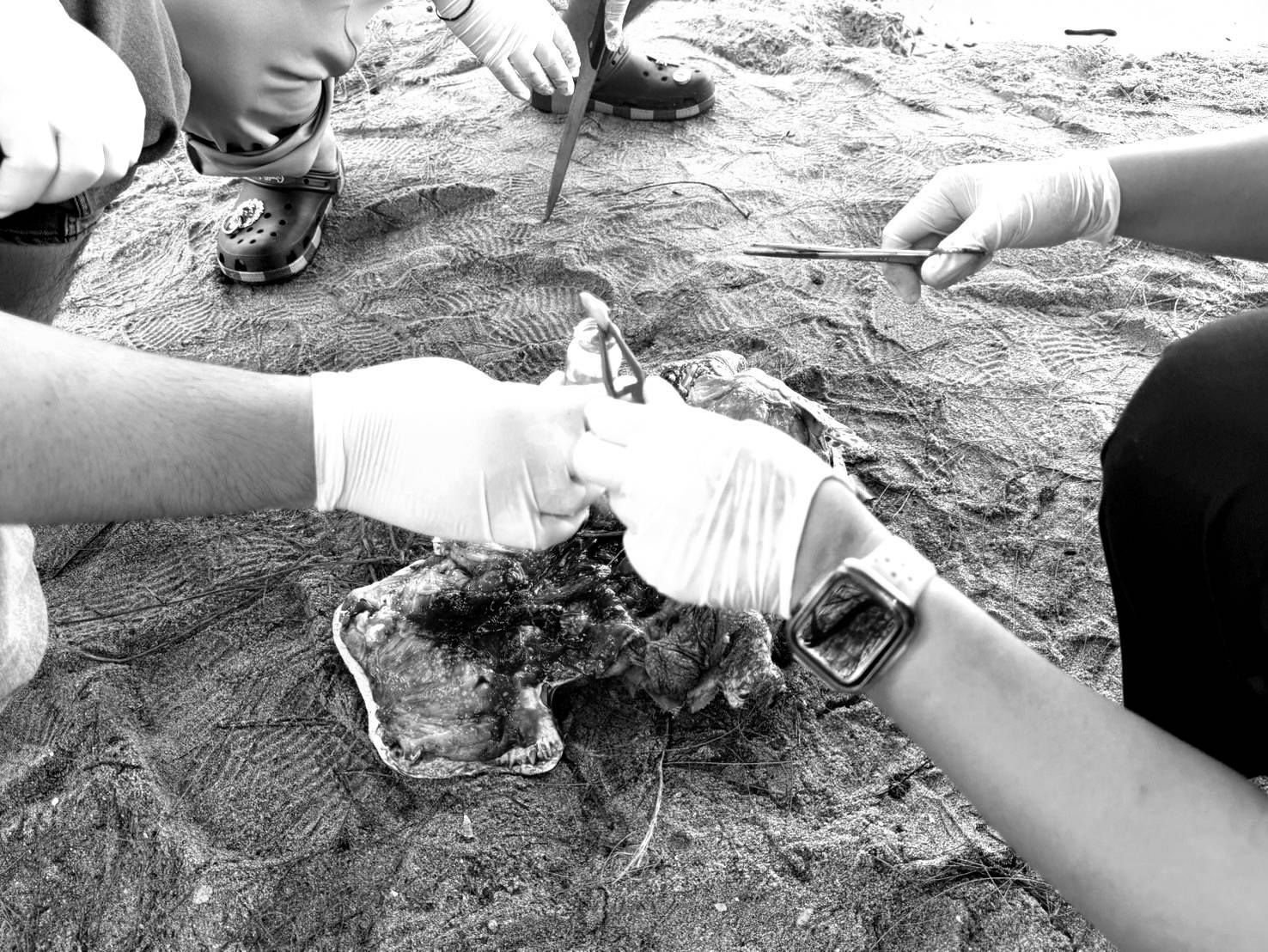
Tissue samples were collected for further analysis. An initial examination of the stomach contents revealed remnants of the turtle’s natural diet—alongside a disturbing discovery: fragments of rope lodged in its intestines. This has led to speculation that marine debris may have contributed to the animal’s death.
“Marine animals continue to fall victim to pollution,” said one official at the scene. “The presence of synthetic rope in the turtle’s gut is deeply troubling and indicative of the threats these endangered species face every day in our waters.”
Due to the advanced state of decomposition, the carcass was buried on the beach following the examination, The Phuket News reported.
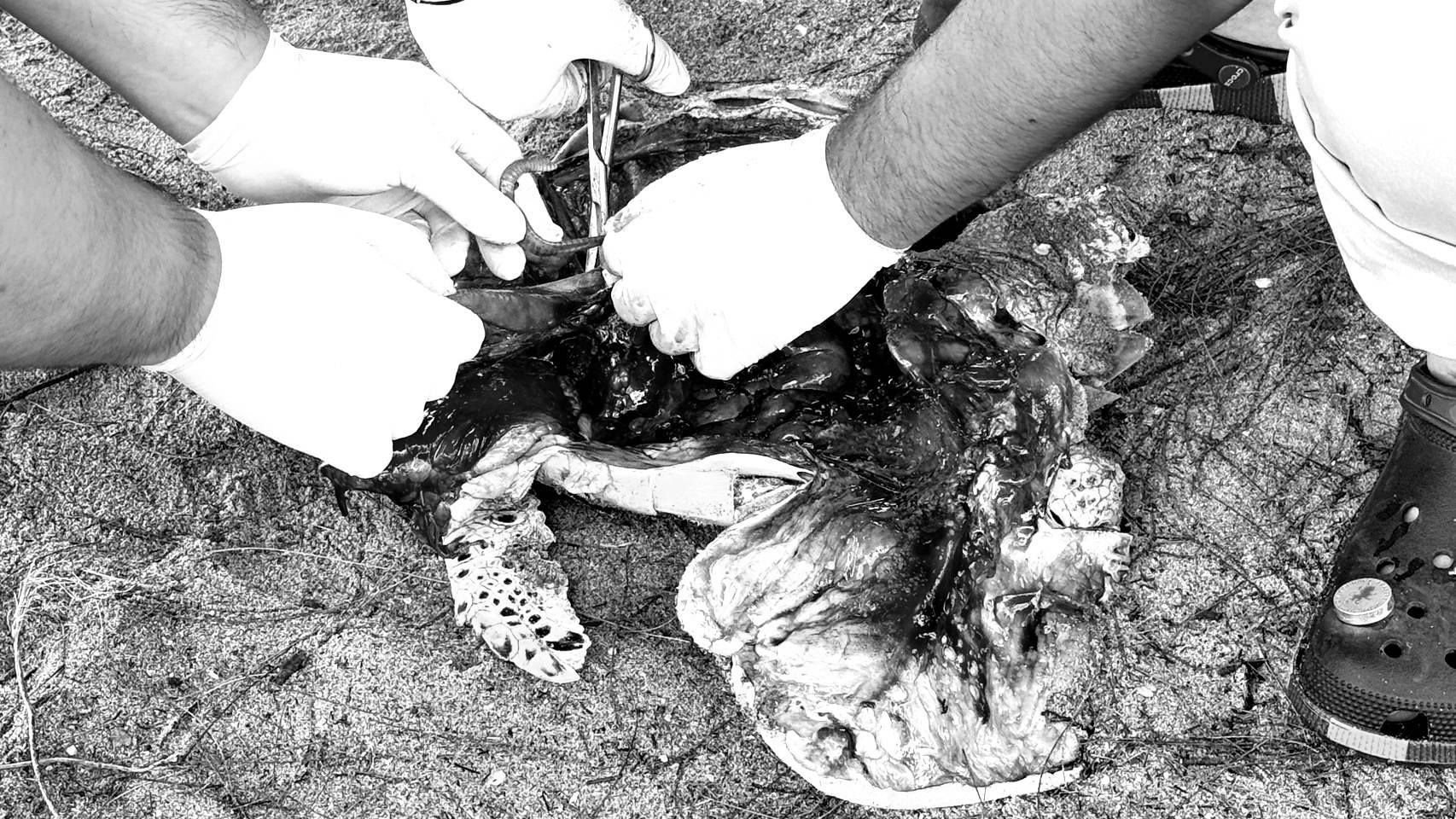
This incident has once again highlighted the growing problem of marine pollution along Thailand’s coastline. Sea turtles, which are protected under Thai law, are increasingly vulnerable to threats from human activity, including plastic waste, fishing gear, and boat collisions.
Authorities have urged the public to dispose of waste responsibly and report any sightings of stranded or injured marine animals to local marine offices.
As the investigation continues, conservationists hope the tragic discovery will serve as a wake-up call for both residents and tourists to take greater care of the ocean and its inhabitants.
Latest Thailand News
Follow The Thaiger on Google News:

